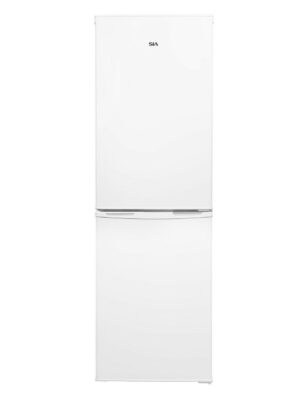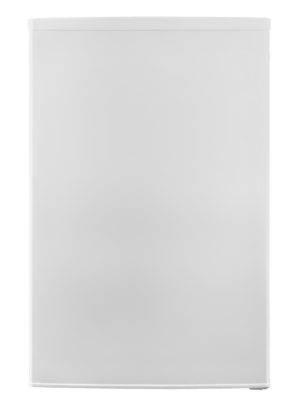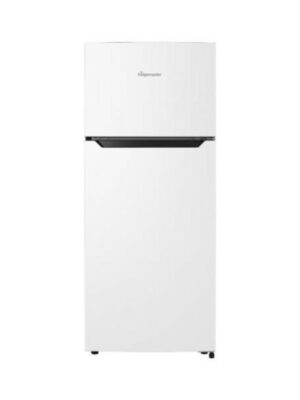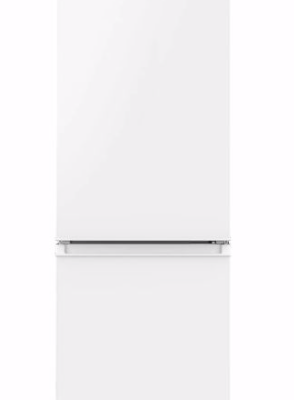For any motorhome owner, having the correct appliances is critical in ensuring any food that does travel across Europe with you is fresh.
That being said, today’s blog will explore the question ‘What food can I take to France in my motorhome?
Inlander Low Voltage is here to provide top-quality low voltage fridges and freezers. As electrical specialists, we are proud to share our products, the majority of which are new or graded.
Regardless, we ensure our products offer the quality that is expected, with a surprisingly cool deal that is friendly to your wallet.
What kind of fridges and freezers can a motorhome use?
Motorhomes typically use three main types of fridges and freezers:
- Compressor Fridges: These are the most common type and function similarly to the fridge you have at home.They use an electric compressor to circulate a coolant, which absorbs heat from the inside and releases it outside.
Compressor fridges are efficient, reliable, and maintain consistent temperatures regardless of outside conditions. However, they require a 12-volt power source (often from the leisure battery) when not connected to shore power (mains electricity).
- Absorption Fridges: Also known as “three-way” fridges, these models can run on three power sources: 12-volt DC (battery), 240-volt AC (mains electricity), or LPG gas. This versatility makes them ideal for off-grid camping trips where you might not have access to electricity.
However, they are generally less efficient than compressor fridges,especially on 12-volt power, and may struggle to maintain consistent temperatures in very hot climates.
- Thermoelectric Coolers: These are essentially high-powered coolers that use a Peltier effect to create a cooling difference between two sides. They are the most energy-efficient option but also the least effective. They can only maintain a temperature a few degrees below ambient temperature, making them better suited for keeping drinks and snacks cool rather than properly storing food for long periods.
Here’s a quick comparison table summarizing the key points:
Feature | Compressor Fridge | Absorption Fridge | Thermoelectric Cooler |
Power Source | 12V DC, 240V AC | 12V DC, 240V AC, LPG Gas | 12V DC |
Efficiency | Most Efficient | Less Efficient | Most Energy Efficient |
Temperature Control | Excellent | Good | Limited |
Suitability for Off-Grid | Requires Electricity | Ideal | Limited |
Cost | Generally More Expensive | Moderate Cost | Less Expensive |
Which food can I take to France in my motorhome?
Due to post-Brexit regulations, bringing food of animal origin (meat, dairy, eggs, honey) from the UK to France in your motorhome is strictly prohibited. This applies to any products containing these ingredients, such as ham sandwiches,cheese, or meals with meat or dairy.
Here’s a breakdown of what you can and cannot bring:
Not Allowed:
- Meat: Fresh, cooked, cured (including sausages, bacon, ham)
- Dairy: Milk, cheese, yogurt, butter, cream
- Eggs: Fresh, cooked, or processed (mayonnaise)
- Honey
- Any pre-made meals containing animal products (sandwiches, salads with meat or cheese)
Allowed:
- Fruits and Vegetables: Generally allowed, but there might be restrictions on certain items. Check the French Ministry of Agriculture website for the latest updates.
- Processed Foods: Packaged snacks, cereals, biscuits (as long as they don’t contain animal products).
- Drinks: Bottled water, soft drinks, juice
Exceptions (with limitations):
- Powdered infant milk: Up to 2kg for babies under 3 years old.
- Infant food: Up to 2kg for babies under 3 years old (ensure it doesn’t require refrigeration before opening).
- Pet food: Up to 2kg for your pets (commercially produced, sealed packaging).
Important tips to remember:
- Always declare any food you are carrying at customs. Not doing so can result in fines or confiscation.
- It’s best to check the latest French customs regulations before your trip. You can find information on the website of the French Ministry of Agriculture or the French Customs website.
- Consider purchasing groceries for your trip once you arrive in France. This will ensure you have everything you need and avoid any issues at customs.
Remember, these regulations are in place to prevent the spread of animal diseases. By following the guidelines, you can ensure a smooth and enjoyable trip to France.
Are there new rules for motorhomes in France?
There aren’t any major, recently implemented rule changes specifically for motorhomes in France. However, here are some key things to keep in mind for your trip:
- Clean Air Zones: Many French cities have implemented Crit’Air Zones (Zones à faibles émissions or Low Emission Zones) to improve air quality. These zones restrict access for vehicles based on their Crit’Air sticker,which indicates their emission level. You can check the Crit’Air website to see if your motorhome needs a sticker and which one (depending on its engine standard).
- Speed Limits: Be aware of the speed limits for motorhomes in France. They can differ depending on the type of road and whether you’re towing a trailer:
- Built-up areas: 30 km/h (18 mph)
- Outside built-up areas: 80 km/h (50 mph) for motorhomes over 3.5 tonnes, 90 km/h (56 mph) for others (unless otherwise indicated)
- Dual carriageways: 100 km/h (62 mph) for motorhomes over 3.5 tonnes without a trailer, 110 km/h (68 mph) for others (unless otherwise indicated)
- Motorways: 110 km/h (68 mph) for all vehicles.
- Blind Spot Stickers: Since January 2021, it’s mandatory for all vehicles exceeding 3.5 tonnes to have blind spot stickers placed on the sides and rear of the vehicle.
- Food Restrictions: Following Brexit, there are strict limitations on bringing food of animal origin (meat, dairy,eggs, honey) into France from the UK. It’s best to buy groceries for your trip after you arrive.
Has Brexit made it harder for motorhomes to travel to france?
Brexit has not only introduced challenges to general travel around Europe, in addition to rules regarding import and export. There are also some new hurdles for motorhome travel between the UK and France.
But that being said, it hasn’t made it impossible. Here’s a breakdown of the impact:
Increased Requirements:
- Green Cards: UK motorhomes now require a green card (proof of valid motor insurance) to travel in the EU,including France.
- Food Regulations: Bringing animal products (meat, dairy, eggs, honey) from the UK to France is strictly prohibited due to post-Brexit regulations. Stock up on groceries after you arrive. This is in an effort to prevent any potential cross-contamination.
- Crit’Air Stickers: Many French cities have Clean Air Zones restricting access for vehicles based on emissions.Check the Crit’Air website to see if your motorhome needs a sticker (indicates emission level).
Find the best refrigeration for your motor home today
Inlander Low Voltage is a family-run business with a passion for bringing you the best deals on 12-volt products. For over 30 years, we’ve been committed to supplying top-quality brands at exceptional prices, all in a modern and efficient way.
Fueled by a dedication to learning and improvement, we quickly earned our customers’ trust. Today, we’ve grown into an exemplary 12-volt business with a stellar reputation.
Our decades of experience have allowed us to forge strong relationships with leading manufacturers like Swan, LEC, Fridgemaster, Hotpoint, Montpellier, and Beko. We’re especially proud to be working on the exciting new Swan retro range of fridges and kitchen appliances.
Despite our growth, one thing remains constant: our commitment to building long-lasting relationships with our customers. Whether you’re a longstanding client or just discovering Inlander Low Voltage, we’re here to provide you with exceptional service and unbeatable value.
In this blog, we hope to have answered the question ‘What food can I take to France in my motorhome?’
Contact us today for any enquiries you may have. Alternatively, you can check our blog page for any further information about the services we offer.
Contact us today
Address:
Unit 9
Gregston Trade Centre
Birmingham Road
Oldbury
B69 4EX
Contact details:
Tel/fax: 0121 421 2555
Email: inlander@btconnect.com
Opening Hours:
Monday to Friday – 9am – 4pm





